I was trying to find the time complexity for a for loop. below is loop detail.
for(int i=N;i>1;i=i/2)
{
for(int k=0;k<i;k++){
sum++;
}
}
Below is any find for the problem. Please correct me if i am going worng.
Inner loop will be exceute N+N/2+N/4+N/8....
so tn=ar^(n-1). So replacing Tn=1, a=N and r=1/2
1=N(1/2)^(n-1)
therefore
1/2N=(1/2)^n
So sum of inner loop is a GP. Sn=a(1-r^n)/(1-r)
Replacing a=N,r=1/2, we get
Sn=N(1-(1/2N))/(1-1/2)
therefore Sn=2N-1
I am not sure if complexity is N.
Please help
Thanks.
